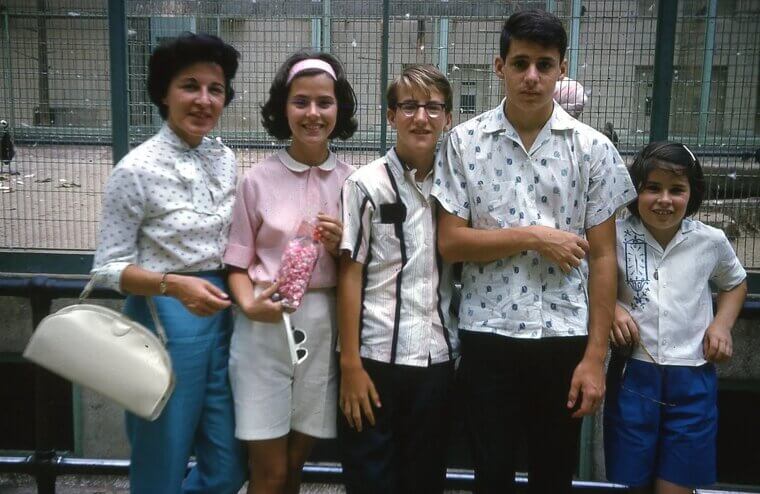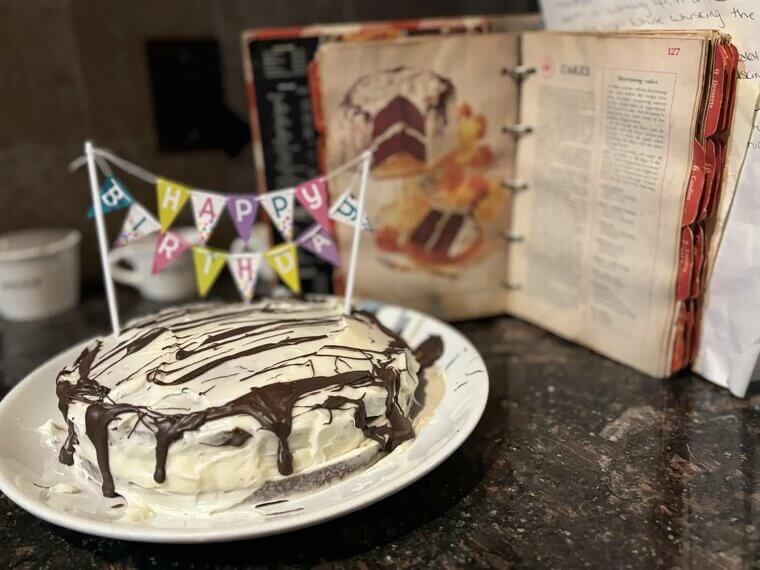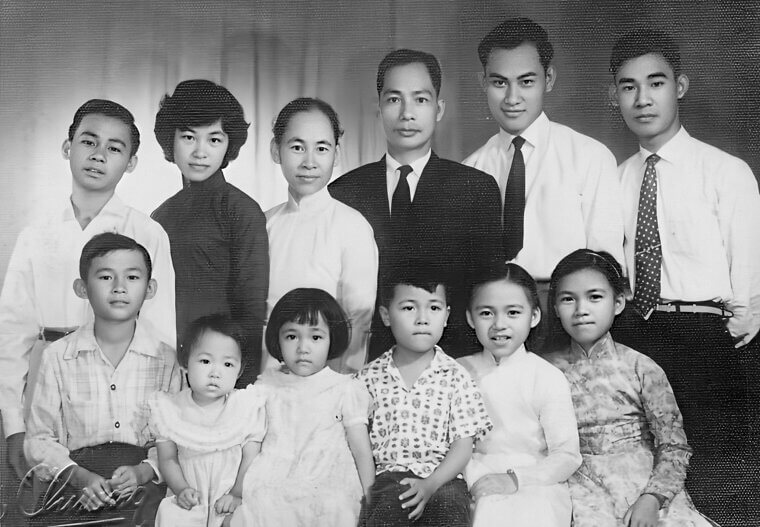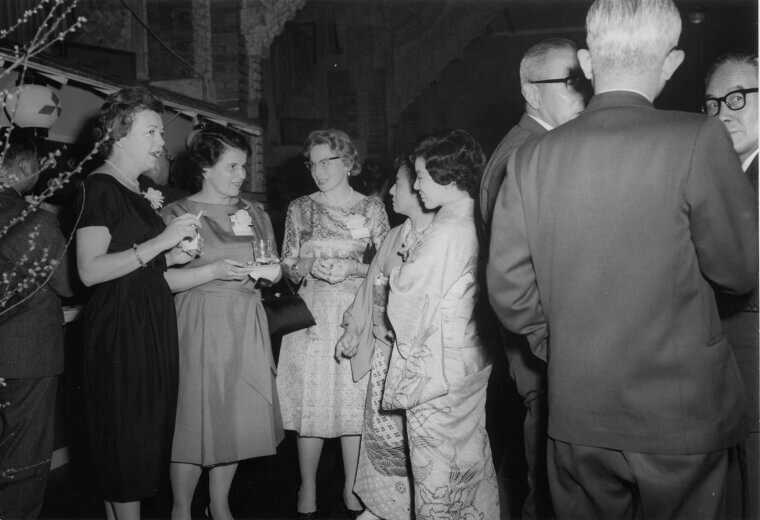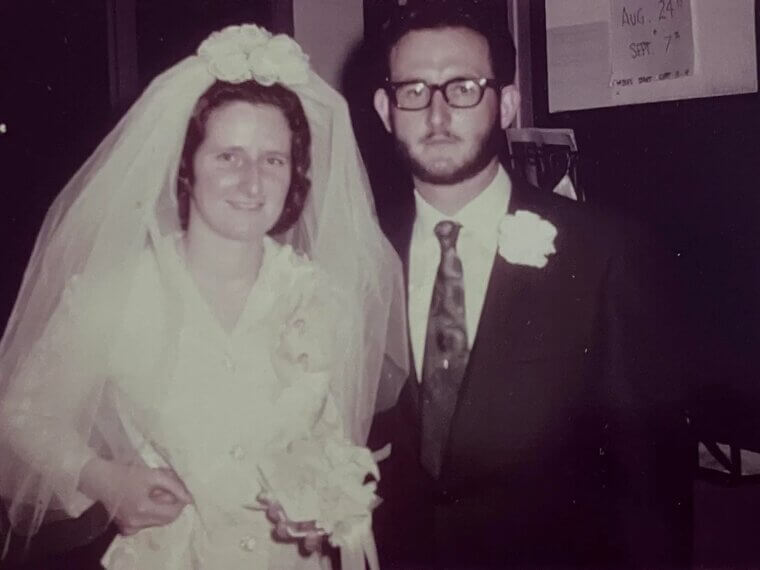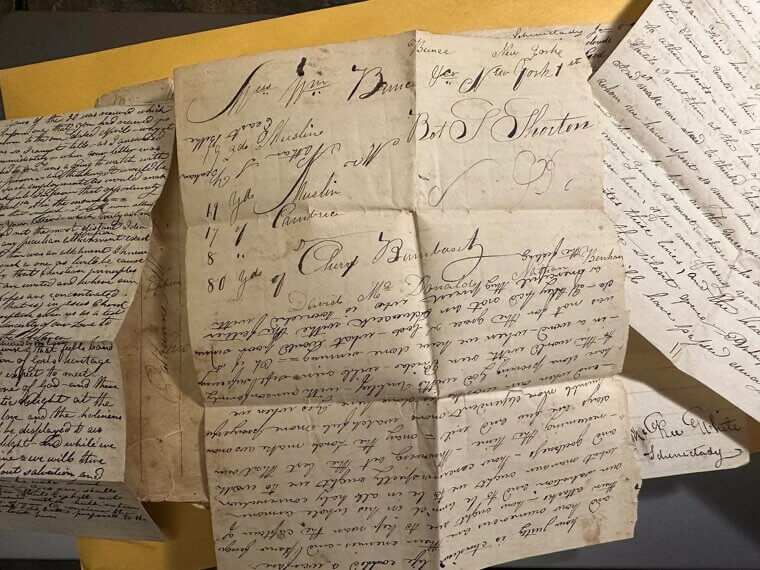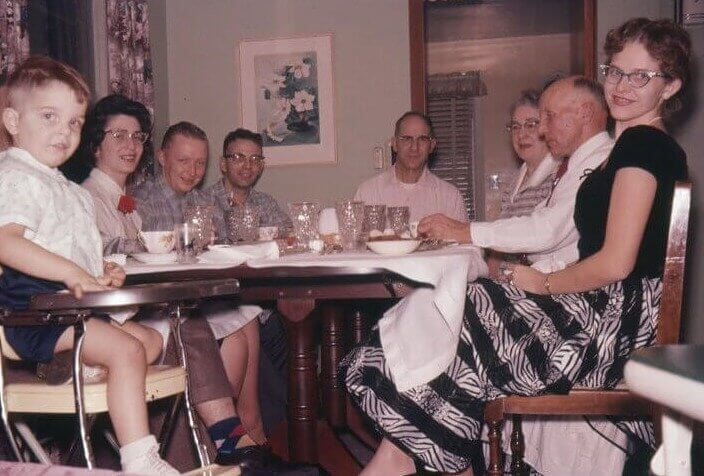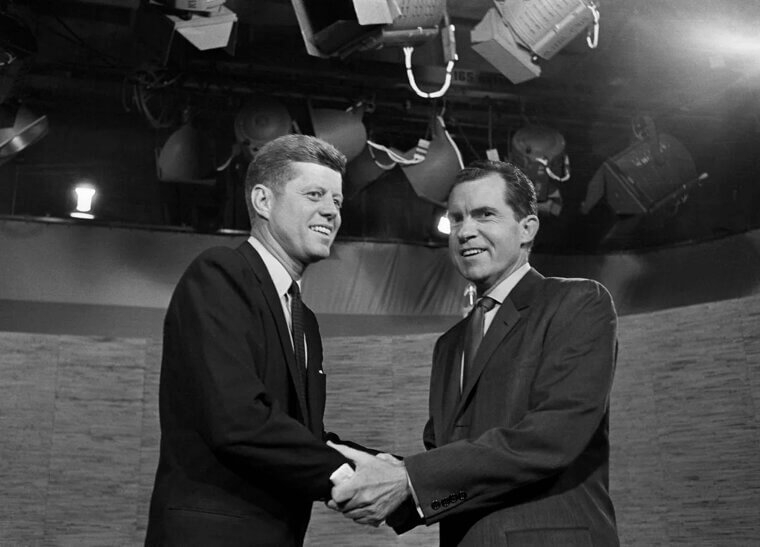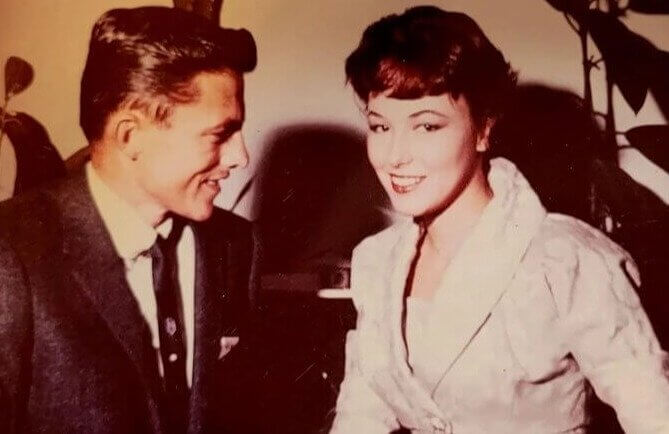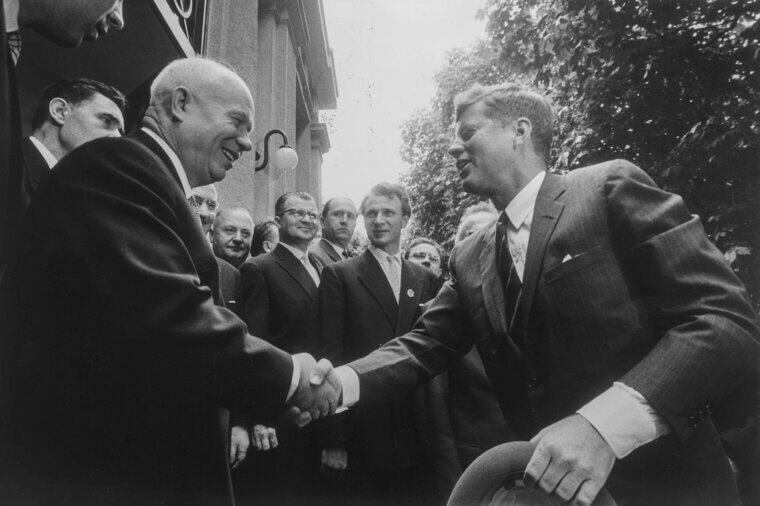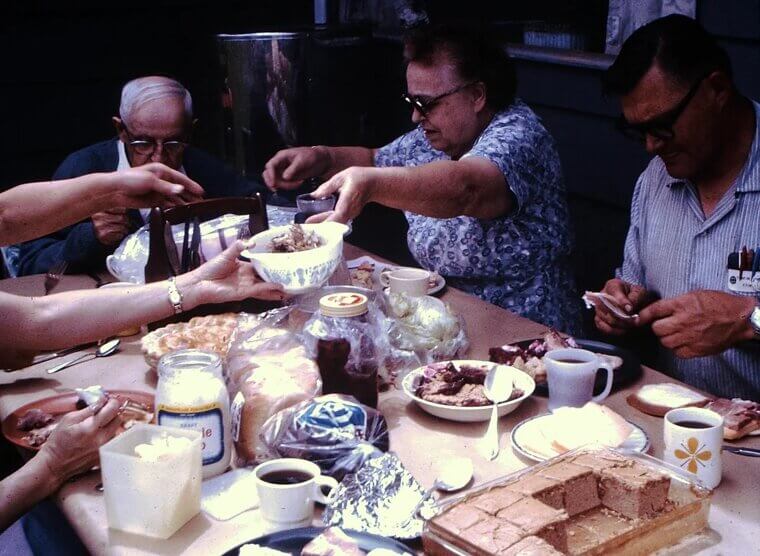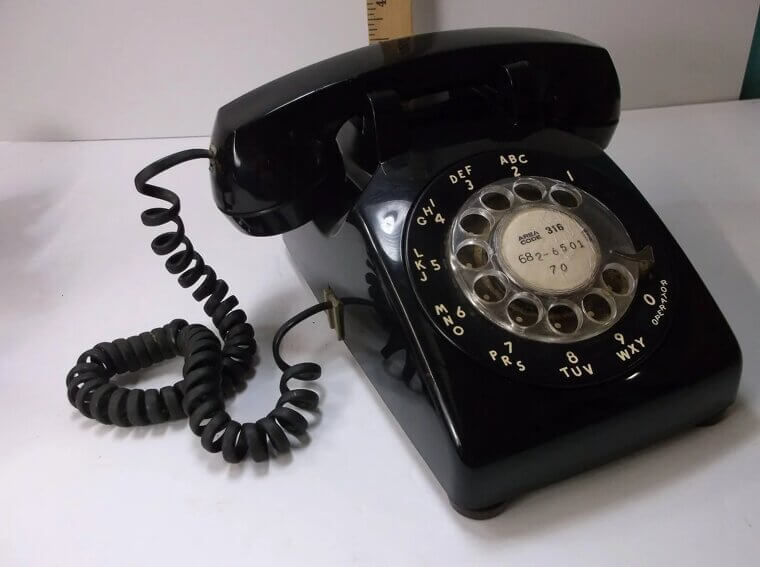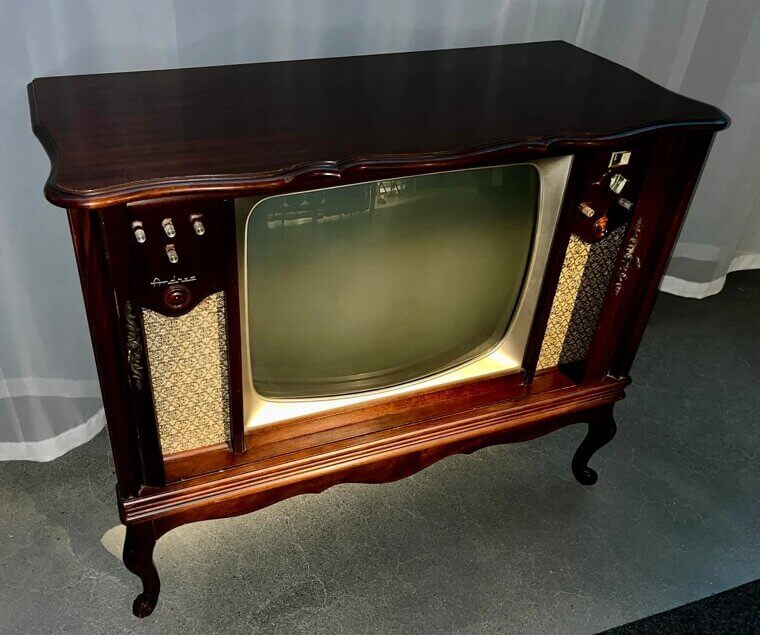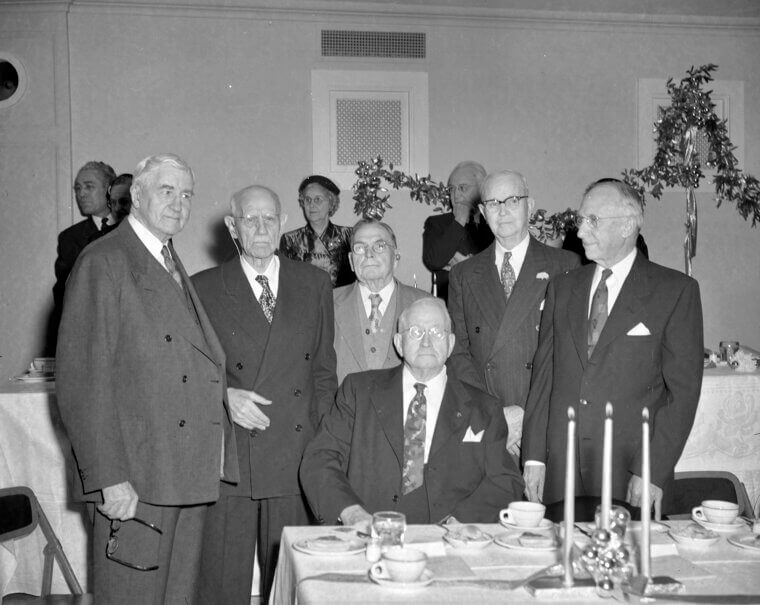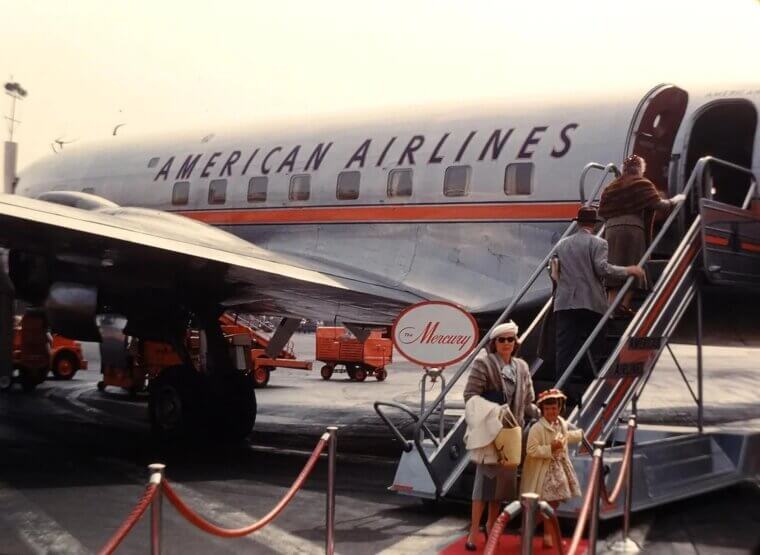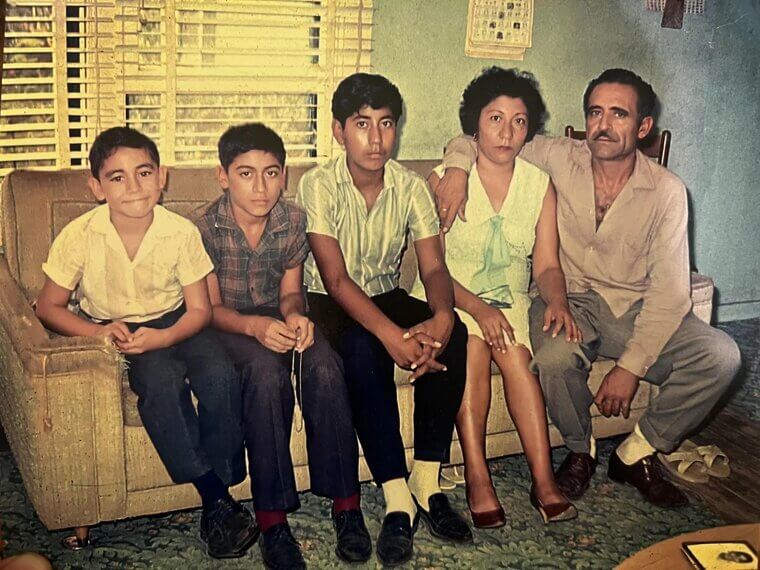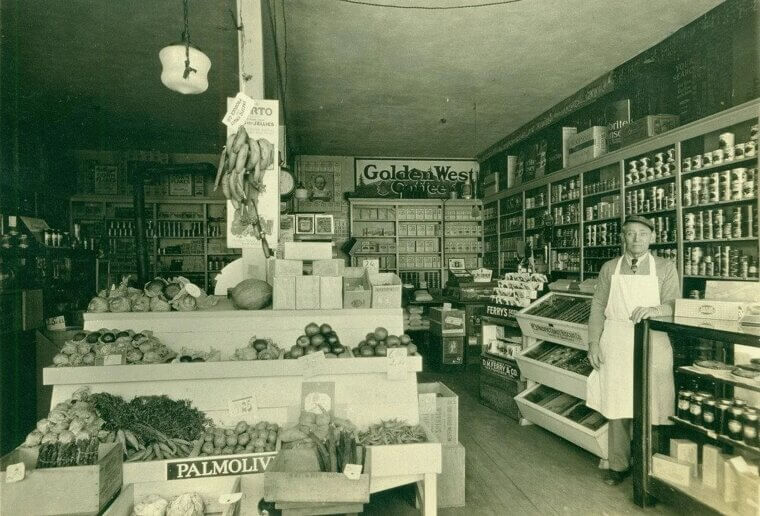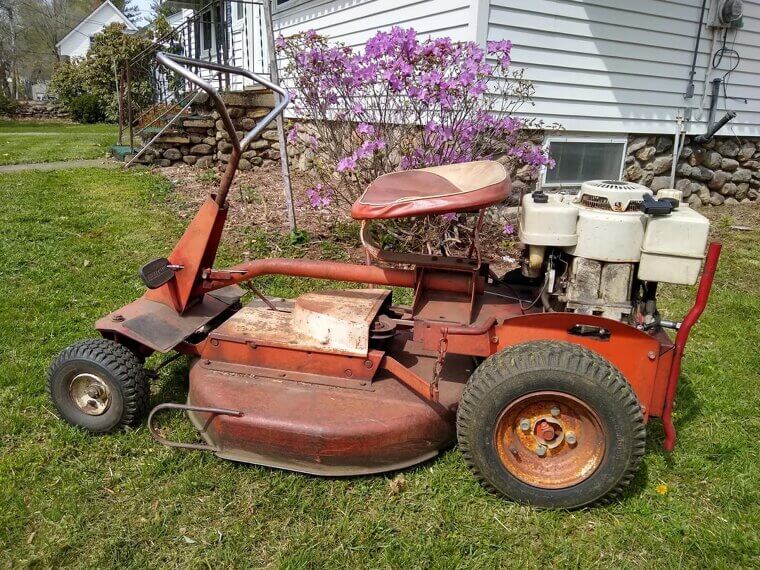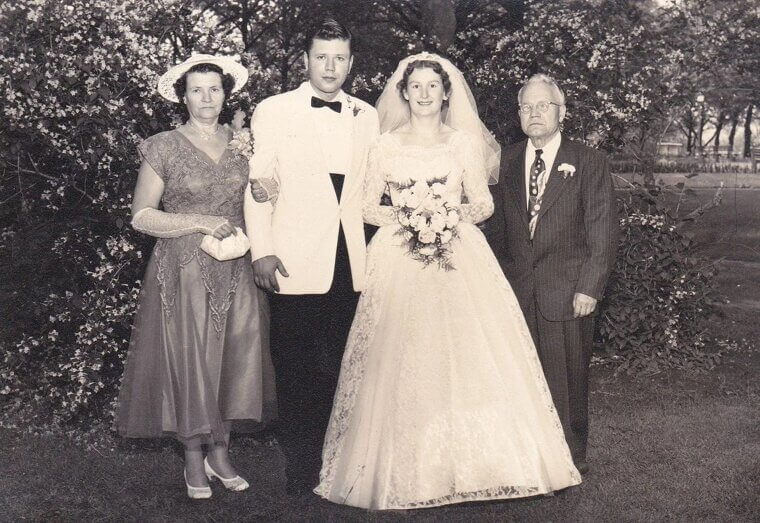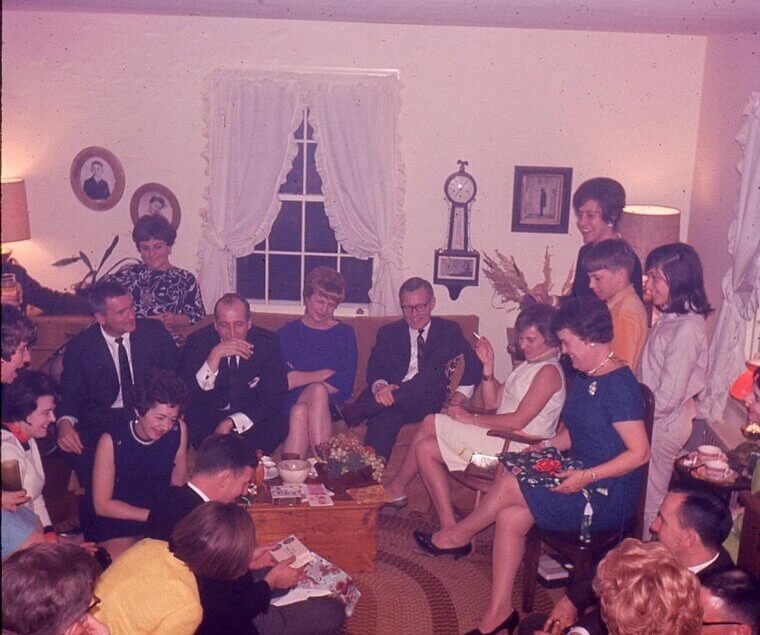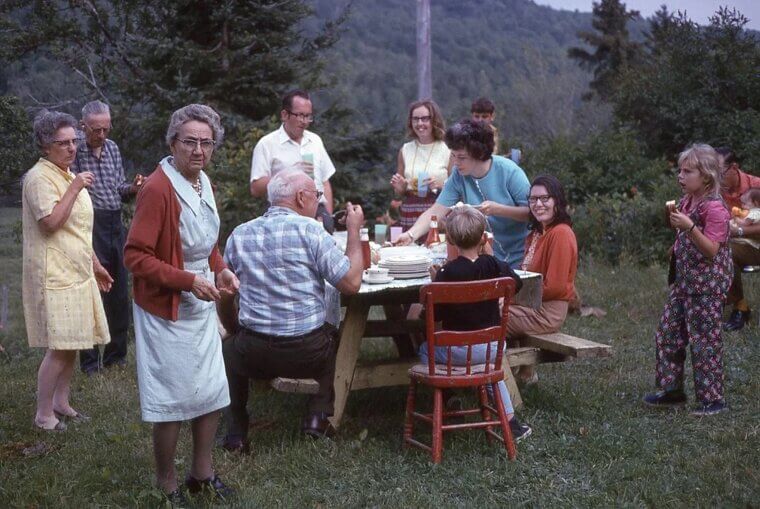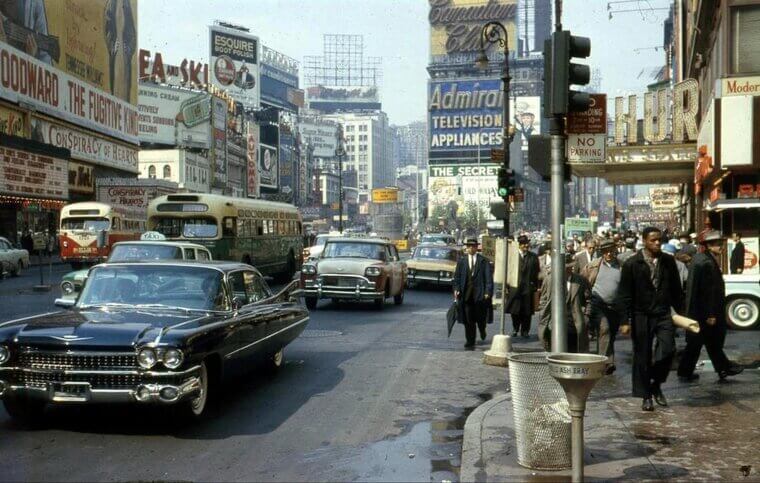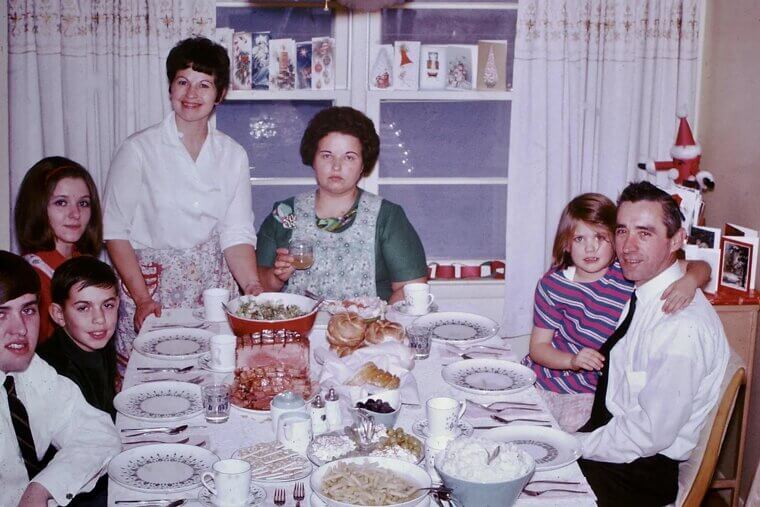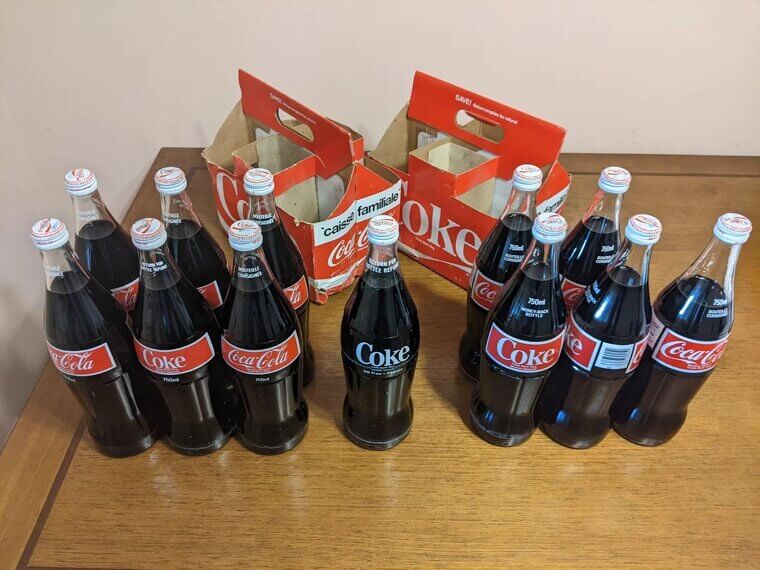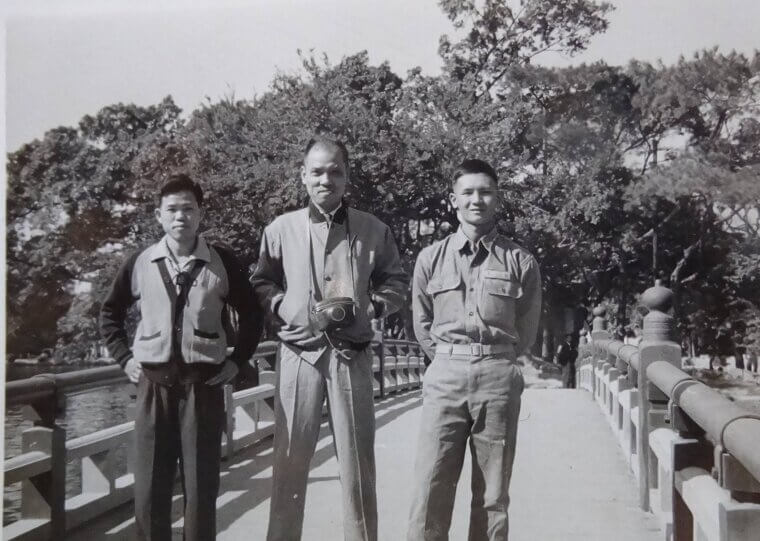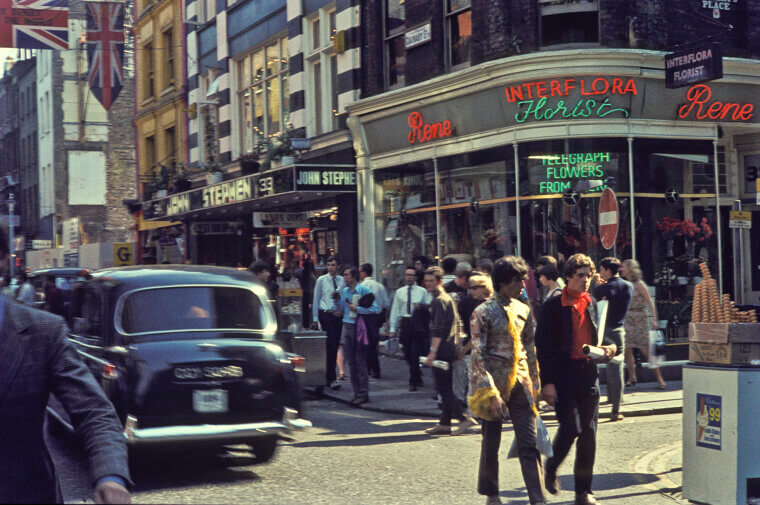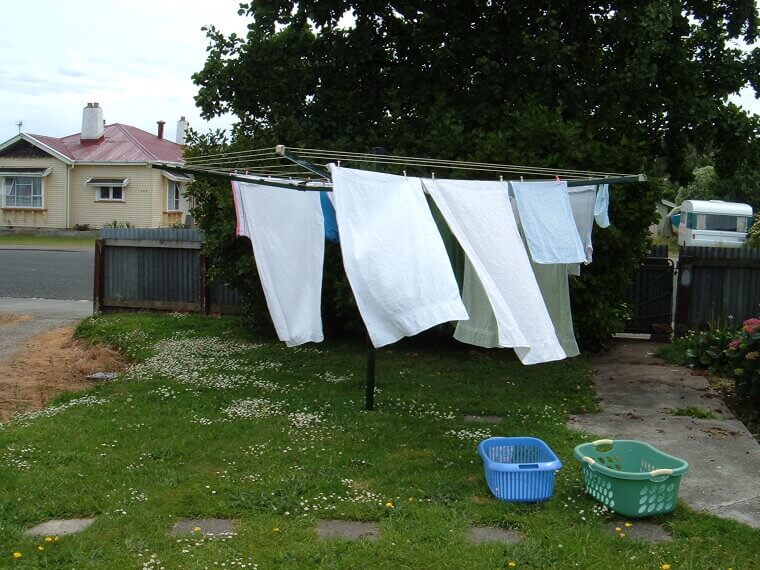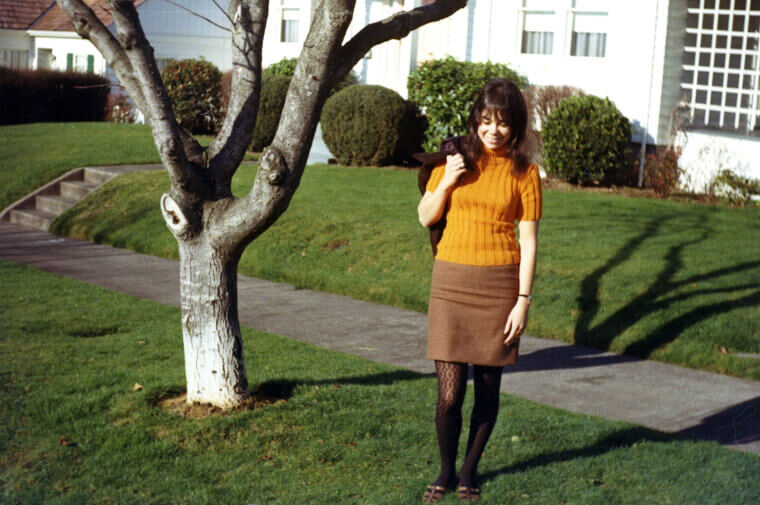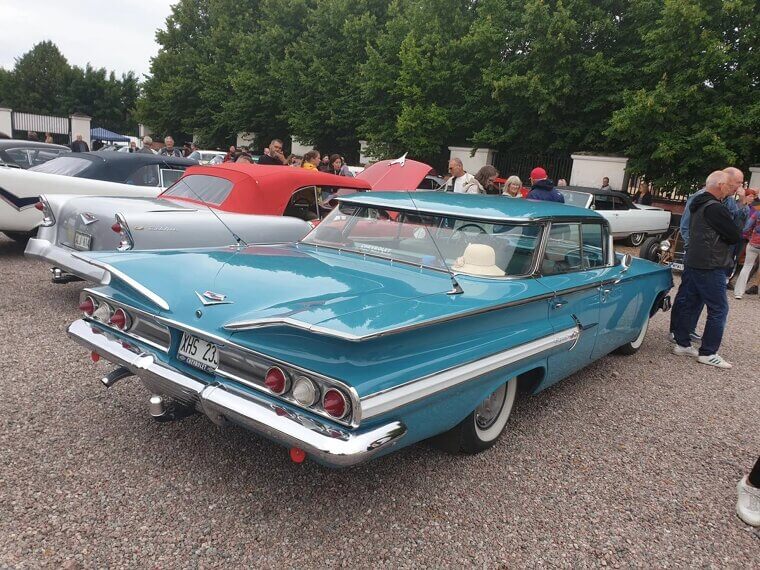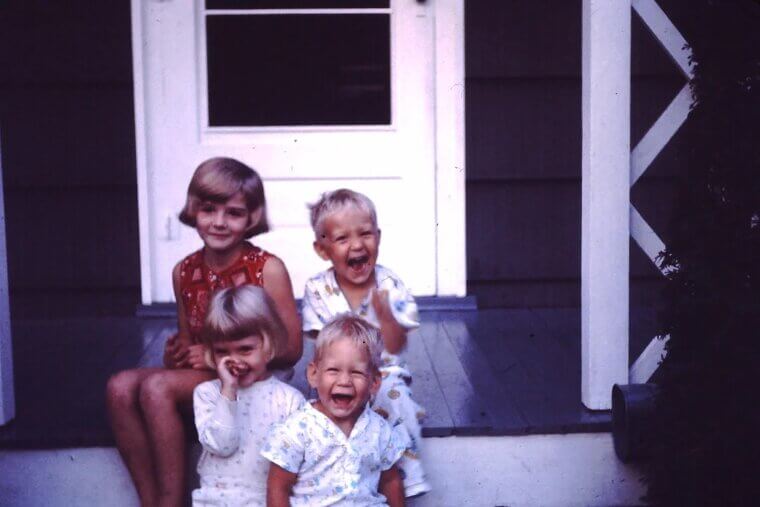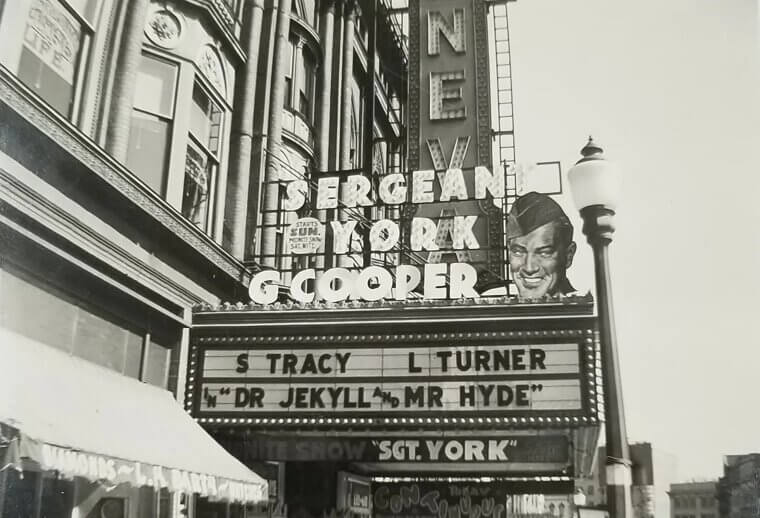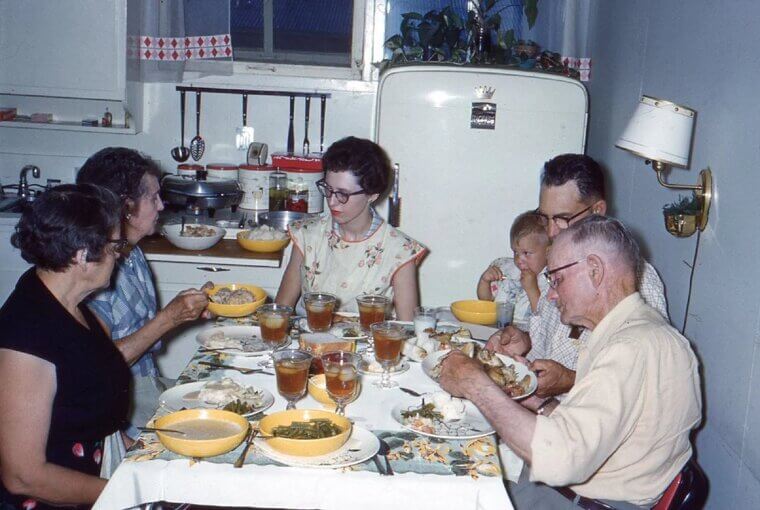Respect Curfews
Kids had more freedom to play outside until dark in the 1960s, but they still had to respect curfews. If parents ordered them home by a certain time and they didn’t show, they’d be quick to lose privileges, or even face stricter discipline methods.
Always Bring a Gift
Showing up empty-handed to any dinner party or other occasion was practically a social sin, and everyone else in the room would be silently judging you. Whether it was a cake, flowers, or a box of chocolates, guests always brought something for the host to thank them.
Children Were Seen, Not Heard
Most unspoken ‘60s etiquette rules were for adults, but there was one golden rule that children had to follow: be seen, not heard. People didn’t take kindly to children being boisterous, interrupting conversations, or talking back to adults. Respecting grown-ups was the first step towards becoming one.
Don’t Talk About Money
Many people in the ‘60s were making plenty of money, but they’d never discuss it in polite company! It was considered obscene to talk about salaries, bills, and anything else that could have been considered financial bragging. Of course, expensive status purchases spoke for themselves.
Avoid Public Displays of Affection
Some might call it prudish, but holding hands was as far as couples typically went 60 years ago. Anything more, including hugging and kissing, was considered inappropriate and reserved for the privacy of your own home. Modesty came before everything else, even passionate love.
Send “Thank You” Letters
It’s always polite to say thank you, but now we can just send a text. Back in the 1960s, people would write out handwritten “thank you” letters after going to a party or receiving a gift. Putting in that effort showed how much you appreciated the other person’s effort.
Keep Elbows Off the Table
In the 1960s, proper table manners were serious business. You sat up straight, with a napkin in your lap or shirt, and never put your elbows on the table, even when reaching for something. Slouching in that way was unspeakably rude and hinted at a poor upbringing.
Address Everyone Formally
Many people hate formal titles today, but back then, first names were reserved for close family and friends only. Everyone else was “Mr”, “Miss”, or “Mrs”, and if somebody had an official title, like “Dr”, it was also non-negotiable to use it. Formality showed respect.
Men Pay For Dates
It’s become a contentious debate over the years, but in the ‘60s it was simply expected that the man would pick up the tab. From movie tickets to dinner dates to more casual activities, men took pride in being providers. It wasn’t about money, but gallantry and social tradition.
Greet People With a Handshake
A firm handshake was the standard 1960s introduction. It was both a greeting and a way to wordlessly measure somebody’s character. Weak, limp, or cold? People instantly had a bad impression of you. A proper handshake showed confidence, in both formal and informal settings.
Bring Food to Your Mouth
Never the other way around! This is a small issue now, but it was a massive unspoken etiquette rule in the 1960s. Good dinnertime manners meant keeping your back straight and raising the fork cleanly to your lips. Leaning down open-mouthed was seen as uncouth.
Never Call After 9pm
People loved chatting on the phone almost as much as they enjoyed conversing in person, but you never called anyone after 9pm unless it was an emergency. Late-night calls were considered intrusive because people would be sleeping or enjoying quiet family time.
Limit TV Time
‘60s families loved watching television, but it was a treat, not an all-day habit. Kids would go to school or play outside, while parents worked or ran errands, then the family would gather to watch shows in the evening. Too much TV was thought to dull the mind.
Stand When Women Enter the Room
This was another unspoken rule for ‘60s men that they all followed without fail. As soon as a woman entered the room, any seated men stood up to acknowledge her presence. This was considered gentlemanly and courteous, not domineering, and it was rude to refuse to do it.
Dress Up to Fly
Air travel was still a glamorous, upper-class experience in the 1960s, so people always dressed well. Men wore suits and ties, women wore dresses and heels, and even children were spruced up in their Sunday best. Stepping onto the plane was almost a formal event.
Don’t Openly Discuss Mental Health
Unfortunately, mental health was highly stigmatized in the ‘60s, so people rarely talked about it. They might have discussed it in private, but any personal or familial struggles were not to be aired in public. It would have made the person the center of much unwanted gossip.
Greet Staff By Name
We’re not sure if everybody in the 1960s was an extrovert, but they sure loved to greet people! Mailmen, grocers, and milkmen would often be greeted by name, emphasizing close community ties and ensuring that all forms of labor were acknowledged. There was pride in politeness.
Keep Your Lawn Tidy
People often judged a family by the look of their property, so it was practically a moral duty to keep your lawn well-trimmed and neat. Responsible and respectable homeowners had pruned gardens, flowerbeds, and spotless outdoor furniture that improved their social and curb appeal.
Never Discuss Marriage Woes
Just like affection was to be kept private, so were marriage woes. People sometimes vented to close friends, but never in public, and couples always sought to maintain appearances. Having a perfect marriage and family were huge parts of your public image.
Always Welcome Visitors
Gen Z may be notorious for refusing to answer the door, but their boomer predecessors were very different! Surprise drop-ins were normal, so people would always welcome company into their homes, with coffee on standby and every room tidied up in advance.
Respect Your Elders
This rule went hand-in-hand with the “children should stay silent” sentiment because elders commanded respect. You offered them your seat, held doors open, and listened silently when they spoke. Age meant wisdom, so people rarely argued with older people, even over mild topics.
Men Walk on the Curbside
It’s a classic gentleman rule that all men followed in the 1960s. When walking with a woman, the man always walked closest to the curb, shielding his lady from splashes and potential danger. It was chivalrous to be so protective.
Women Always Host
Men were generally the breadwinners, so it went unsaid that women would host any social events. They had more free time to plan, clean up the house, and get food and coffee ready for people to come over. It gave them a chance to showcase their homes and families.
Always Drink From a Glass
Drinking bottled drinks is the norm nowadays, but back then, it was considered crude to put your lips to a bottle. Whether it was soda, beer, or water, it went into a glass. Even if you weren’t sitting at the dinner table, those manners were still important.
Maintain Good Posture
Clothing and hygiene said a lot about a person’s status in the ‘60s, but it meant nothing if you had bad posture. Slouching was sloppy, especially for women, and it made a person look uncouth. Carrying yourself with a straight back showed personal pride.
Accents Dictate Social Class
This social prejudice is sadly still around nowadays, but it was far more acceptable in the 1960s. Speaking in a crisp accent with a fancy vocabulary suggested a better education, whereas regional drawls or slang were looked down on. Many people were unfairly judged.
Hang Laundry Neatly
It was a small but significant detail that often dictated what neighbors thought of you. A messy clothesline looked sloppy, and implied that the inside of your home was the same. That’s why people hung laundry in straight lines coded by color.
Modesty Equals Refinement
The ‘60s was a famously vibrant, flashy era, but many people still believed that modesty meant refinement. True elegance was about dressing up tastefully, instead of embracing new fashion or makeup trends. “Less is more” was the accepted etiquette of the time.
Own an American Car
Driving a powerful Ford or beautiful Chevy wasn’t just patriotic, it was expected. Imported cars were sometimes judged for being “unamerican”, and most people preferred things made inside the country. That’s likely why so many classic ‘60s cars stood the test of time.
Don’t Chew Gum
Chewing gum is often dismissed as rude today, but it was absolutely vulgar in the 1960s. It gave off a careless impression, and if any children did it, people would assume they’d had a rough upbringing. It was far more polite to freshen your breath with mints.
Never Talk in Movie Theaters
Talking during a movie now? Rude. But back then, it was absolutely unthinkable. People didn’t have access to streaming sites in the ‘60s, so going to the movies was a huge deal. They dressed smartly and watched without chatting, rustling, or making any movements.
Know Your Neighbors
‘60s neighborhoods were close-knit communities where everybody knew everybody, so it was unspeakably rude not to interact with your neighbors. People waved from front porches, shared recipes, and borrowed milk without issue. Being neighborly also meant more access to local gossip.

